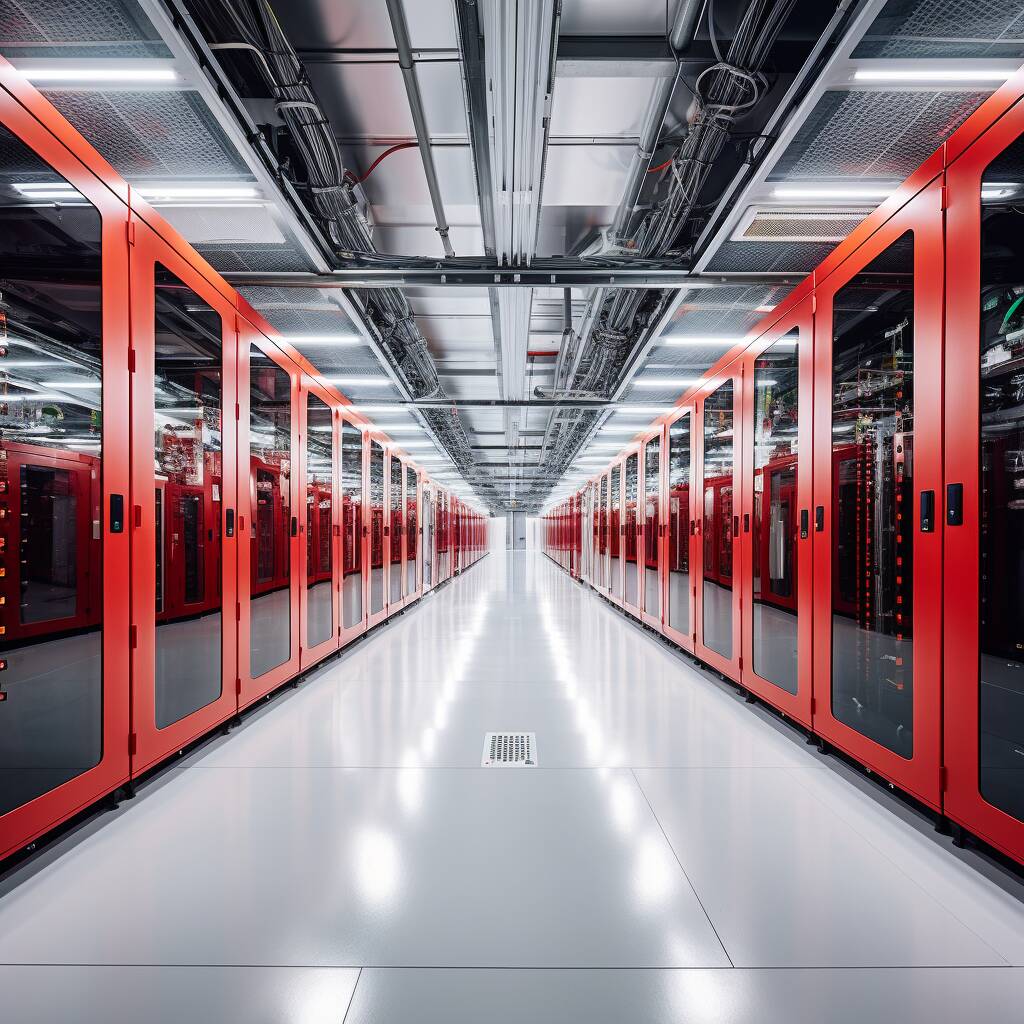Datacenters Line Up For 750MW Of Oklo's Nuclear-waste-powered Small Reactors

Increasingly, datacenter operators are putting their faith in the promise of miniaturized nuclear power plants – better known as small modular reactors (SMRs) – to fuel their ever-growing energy demands.
Sam Altman-backed SMR startup Oklo says it's obtained letters of intent from two major – but unnamed – datacenter providers to deliver up to 750 megawatts of atomic power from its fast fission reactor designs across the US. The commitments bring the firm's planned nuclear build-out to 2.1 gigawatts.
Oklo's designs are, from what we understand, inspired by the Experimental Breeder Reactor II (EBR-II) and utilize liquid-metal cooling. They are capable of producing between 15MW and 50MW of power, depending on the configuration.
That means Oklo's datacenter customers plan to deploy somewhere between 15 and 50 of the reactors to satisfy their thirst for electricity. However, they may be waiting a while.
According to Oklo's website, the nuclear startup hopes to bring its first plant online before the end of the decade.
Before that can happen, though, Oklo will need to obtain approval from the Nuclear Regulatory Commission – something for which it says it's already submitted applications. In 2022, the watchdog rejected an Oklo plan to build a small atomic reactor in Idaho, citing "significant information gaps" on safety-related measures.
That said, Oklo has lately received support from US government agencies including the Department of Energy (DoE), which has awarded a site use permit, while Idaho National Laboratory – home of EBR-II – has provided fuel material to support the efforts.
Speaking of fuel, Oklo's designs may not suffer from the challenges other SMR startups, like Terrapower, have encountered. Oklo's designs are intended to run on recycled nuclear waste products from traditional reactors. In fact, the startup is currently working with DoE national labs to develop new fuel recycling technologies. Oklo hopes to bring a commercial-scale recycling plan online by the early 2030s.
For all the hype SMRs have enjoyed over the past two years, the technology has yet to prove commercial viability. Yet the promise of abundant, off-grid power seems too good for datacenter operators to pass up.
Last month, Amazon said it would support the development of three new nuclear energy projects – which included the construction of several SMRs from X-energy. The e-commerce giant is one of the major investors for the startup's $500 million Series-C funding.
Oracle has also announced it secured building permits for a trio of SMRs to power a datacenter with over a gigawatt of AI compute capacity. Meanwhile, Google has teamed up with SMR vendor Kairos Power to fuel its AI ambitions.
And even if these giants can cut through all the red tape, SMRs will not be cheap. In fact, the Institute for Energy Economics and Financial Analysis has argued that SMRs are "too expensive, too slow to build, and too risky to play a significant role in transitioning away from fossil fuels."
NuScale, which was among the first to obtain NRC approval for its own SMR design, has already run into trouble for this reason. The startup had planned to build six reactors capable of producing 462 megawatts in Utah. However, higher than expected prices eventually led many municipalities to pull out of the project, and it was ultimately abandoned.
- UK government plays power broker with small modular reactor suitors
- Tech giants set to pay through the nose for nuclear power that's still years away
- Amazon makes $500M bet on itty-bitty nuclear reactors to fuel cloud empire
- Uncle Sam lends $1.5B to reignite Michigan nuclear plant in 2025
Even traditional large-scale nuclear plants aren't necessarily a guarantee of success – as Amazon recently discovered the hard way. Earlier this year, Amazon purchased Cumulus Data's atomic datacenter, located alongside the 2.5 gigawatt Susquehanna nuclear power plant in Pennsylvania for $650 million.
However by November, it had hit a roadblock as federal regulators rejected a deal that would have let it draw additional power for a field of bit barns from the plant. Amazon had sought to increase its draw from the site from 300 to 480 megawatts.
It could be worse. Meta's planned nuclear datacenter complex has reportedly been foiled by bees. Apparently, a rare species of bees had been discovered on a prospective site, resulting in the project's cancellation. ®
From Chip War To Cloud War: The Next Frontier In Global Tech Competition
The global chip war, characterized by intense competition among nations and corporations for supremacy in semiconductor ... Read more
The High Stakes Of Tech Regulation: Security Risks And Market Dynamics
The influence of tech giants in the global economy continues to grow, raising crucial questions about how to balance sec... Read more
The Tyranny Of Instagram Interiors: Why It's Time To Break Free From Algorithm-Driven Aesthetics
Instagram has become a dominant force in shaping interior design trends, offering a seemingly endless stream of inspirat... Read more
The Data Crunch In AI: Strategies For Sustainability
Exploring solutions to the imminent exhaustion of internet data for AI training.As the artificial intelligence (AI) indu... Read more
Google Abandons Four-Year Effort To Remove Cookies From Chrome Browser
After four years of dedicated effort, Google has decided to abandon its plan to remove third-party cookies from its Chro... Read more
LinkedIn Embraces AI And Gamification To Drive User Engagement And Revenue
In an effort to tackle slowing revenue growth and enhance user engagement, LinkedIn is turning to artificial intelligenc... Read more

